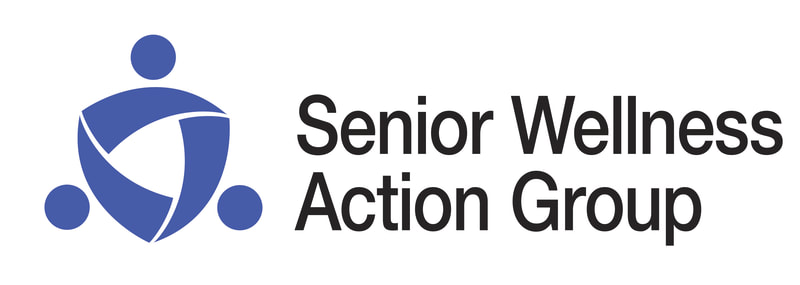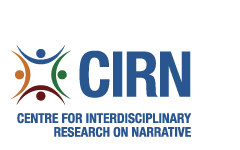Benefits
Strength
Telling our stories can be meaningful not only for personal self-reflection, but facilitating and restoring the narratives of others. A restorative narrative is a story that demonstrates how people and communities can overcome hardships, rebuild and recover from them (Tenore, 2016). Through storytelling we are capable of capturing authentic hard truths and identifying the strengths we have developed because of them.
Sharing our lived reality can have a lasting impact, and give people a sense of comfort knowing that they are not isolated in their experiences. There is nothing more compelling than realizing for the first time that you are not alone, and that you have the power to conquer anything!
Happiness
The pursuit of happiness is an important goal for all generations in life. Reminiscing about key moments in our lives does not only allow for review of the past but provides an opportunity for individuals to develop more positive attitudes towards their experiences.
Studies have shown that happiness can lead to a favorable attitude towards life, a positive self-concept, higher levels of vitality and mental health; proper affect, and higher levels of social and physical functioning. Furthermore, it is connected to increased physical and psychological wellbeing, better sleep, reduced stress, increased longevity and the ability to adapt to life events. (Yousefi et. al, 2015)
Health
Research has shown that writing or conversing about important personal experiences in an emotional way for as little as 15 minutes over the course of three days brings about improvements in mental and physical health. This finding has been replicated across age, gender, culture, social class and personality type. (Pennebaker et. al, 1999)
Lastly, talking to others about health experiences (negative and positive) have been shown to have significant impact in terms of increasing individuals’ motivation and commitment to long-term behaviour change. Hearing of someone personally overcoming an illness can initiate a sense of hope, and facilitate a stronger desire for individuals to devote more time to their personal health and wellness (National Council on Aging, 2017).
Perspective
“Most seniors care about the things that affect their lives, families, and communities. They worry about issues that affect everyone: health, housing, environmental warming, family histories, violence, and economics. To own accurate and revealing information and research is to have a power and to make a difference.” (Emes et. al, 2015)
Older adults hold an expert perspective, and we must work collaboratively with seniors and their families when making decisions surrounding policies and programs in our province. By providing a platform for seniors to share their stories, we are taking a person-centered approach in achieving wellness throughout our province.
According to the Strategy on Aging (2017) New Brunswick has confirmed they want to be engaged and participate in the planning and development of the programs and services that are available to them. They want to make sure their values, cultural background, religious beliefs, social circumstances and lifestyle choices are considered. Above all, when receiving services, seniors want service providers to demonstrate compassion, empathy, and respect.” (An Aging Strategy for NB, 2017)
Their voices are authentic, compelling and enlightening. They hold the wisdom needed for us to move forward and create positive change in our New Brunswick communities.
______________________________________________________________________________
“Resilience is about moving beyond adversity to strength, about turning hardships into insights and about skills and character that lead people to anticipate and believe that they can handle future challenges.” (Emes et al., 2008)
Telling our stories can be meaningful not only for personal self-reflection, but facilitating and restoring the narratives of others. A restorative narrative is a story that demonstrates how people and communities can overcome hardships, rebuild and recover from them (Tenore, 2016). Through storytelling we are capable of capturing authentic hard truths and identifying the strengths we have developed because of them.
Sharing our lived reality can have a lasting impact, and give people a sense of comfort knowing that they are not isolated in their experiences. There is nothing more compelling than realizing for the first time that you are not alone, and that you have the power to conquer anything!
Happiness
The pursuit of happiness is an important goal for all generations in life. Reminiscing about key moments in our lives does not only allow for review of the past but provides an opportunity for individuals to develop more positive attitudes towards their experiences.
Studies have shown that happiness can lead to a favorable attitude towards life, a positive self-concept, higher levels of vitality and mental health; proper affect, and higher levels of social and physical functioning. Furthermore, it is connected to increased physical and psychological wellbeing, better sleep, reduced stress, increased longevity and the ability to adapt to life events. (Yousefi et. al, 2015)
Health
Research has shown that writing or conversing about important personal experiences in an emotional way for as little as 15 minutes over the course of three days brings about improvements in mental and physical health. This finding has been replicated across age, gender, culture, social class and personality type. (Pennebaker et. al, 1999)
Lastly, talking to others about health experiences (negative and positive) have been shown to have significant impact in terms of increasing individuals’ motivation and commitment to long-term behaviour change. Hearing of someone personally overcoming an illness can initiate a sense of hope, and facilitate a stronger desire for individuals to devote more time to their personal health and wellness (National Council on Aging, 2017).
Perspective
“Most seniors care about the things that affect their lives, families, and communities. They worry about issues that affect everyone: health, housing, environmental warming, family histories, violence, and economics. To own accurate and revealing information and research is to have a power and to make a difference.” (Emes et. al, 2015)
Older adults hold an expert perspective, and we must work collaboratively with seniors and their families when making decisions surrounding policies and programs in our province. By providing a platform for seniors to share their stories, we are taking a person-centered approach in achieving wellness throughout our province.
According to the Strategy on Aging (2017) New Brunswick has confirmed they want to be engaged and participate in the planning and development of the programs and services that are available to them. They want to make sure their values, cultural background, religious beliefs, social circumstances and lifestyle choices are considered. Above all, when receiving services, seniors want service providers to demonstrate compassion, empathy, and respect.” (An Aging Strategy for NB, 2017)
Their voices are authentic, compelling and enlightening. They hold the wisdom needed for us to move forward and create positive change in our New Brunswick communities.
______________________________________________________________________________
“Resilience is about moving beyond adversity to strength, about turning hardships into insights and about skills and character that lead people to anticipate and believe that they can handle future challenges.” (Emes et al., 2008)





